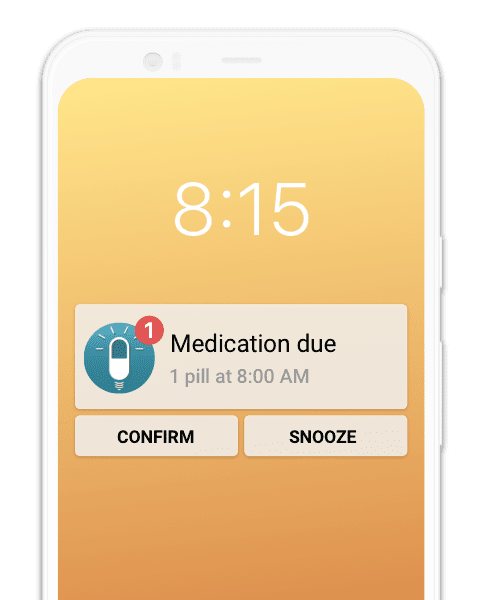Following an infection with COVID, you may lose your sense of smell, however, we do not currently have long-term data for COVID patients about recovery of smell. Based on studies of other viruses that cause loss of smell, we know smell can return quickly within a couple of weeks, but other viruses can take many months to recover. This means that recovery can sometimes be a slow process. From what we know so far, about 1 in 10 cases of smell and taste problems persist after COVID infection; we know from other viruses that about 1 in 3 people will see recovery of their sense of smell over 3 years.
Most people underestimate the importance of smell until it's not working properly. This sense is linked to emotion and memory, alerts us to danger, and most importantly, is paired with taste to give us flavor.
Anosmia, or the loss of smell, has been linked to depression. The COVID-19 pandemic has brought anosmia to the forefront. However, many viruses cause smell dysfunction, including the common cold.
Why does COVID-19 affect smell and taste?
COVID-19's ability to alter taste and smell remains unclear. One theory suggests that SARS-CoV-2, as with some other similar viruses, causes inflammation inside the nose that leads to a loss of olfactory or smell neurons.
Researchers found that the expression of the human cell receptors to which SARS-CoV-2 binds is higher in the nasal cavity and cells in the olfactory tissue causing a loss of smell and taste.
Though it is still unclear as to why COVID-19 causes a loss of smell and taste, a meta-analysis from 2020 found that 53% of individuals who contracted COVID-19 experienced taste and smell problems. Taste or smell loss, or reduction of these senses, might be an early symptom of COVID-19. By making people aware of these symptoms, they say, it might encourage earlier diagnosis and treatment.
Should I be worried about the loss of smell and taste?
After recovering from COVID-19, many patients fail to recover their sense of smell right away, and some may worry the situation could be permanent, however, a recent study has encouraging news for these patients. The results showed nearly all patients who lost their sense of smell after contracting COVID-19 were able to regain it.
The loss of smell and taste study
Researchers in France tracked 97 patients who, on average, were 39 years of age. All had lost their sense of smell after contracting COVID-19. Patients were asked how their smelling ability changed at four months, eight months, and a full year after losing their sense of smell. Approximately half of them also underwent specialized testing.
By four months, about 84 percent of the 51 patients had regained their sense of smell, while six patients had still not recovered their sense of smell; the remaining eight patients had done so by the eight-month mark. A year after their initial diagnosis, only two out of 51 patients who were tested with the specialized tests still suffered some problems with their sense of smell, the findings indicated.
Overall, 96 percent of the patients objectively recovered by 12 months, the researchers reported.
Though, on average, it is estimated that approximately 90% of those affected can expect improvement within four weeks.
How to improve the loss of taste and smell?
- Choosing foods that appeal to you is the key to ensuring you eat well, and you should continue to try new foods as your taste preferences may change
- Keeping your mouth healthy by brushing your teeth early in the morning and late at night, and rinsing your mouth with water if it feels dry or uncomfortable. Avoid alcohol based mouthwashes
- Unless you have been given specific recommendations from a Speech and Language Therapist (SLT) regarding your swallowing, try experimenting with different flavors, textures and temperatures of food to see which you find more digestible. You may find bland flavors such as plain chicken, fish, tofu and rice may be easier to eat especially if you are still feeling nauseated or have an unsettled stomach
- Maintain a healthy diet with a good protein intake however, high protein foods can take on a bitter or metallic taste. Try marinating meats with sweet/sour marinades to change the flavor and try a variety of protein sources to find the most enjoyable one for you; red meat, poultry, fish, egg, cheese, vegetarian meat alternatives, beans and pulses
- Flavored foods and drinks such orange, lemon, lime flavors can be useful in balancing very sweet tastes. Sucking boiled sweets and mints may also help refresh your mouth before and after eating
- Trying plastic cutlery instead of metal and using glass cookware if you are experiencing a metallic taste
If you are struggling to maintain your weight and eat well, please contact your doctor or medical professional
In some cases, smell training could help people regain their sense of smell sooner. The training involves smelling four scents for a few seconds each per day. Concentrating on each scent may be helpful. By choosing different tastes of foods, one can apply this training to their sense of taste.
Those struggling with a loss of taste and smell may also find these online support groups and forums to be useful:
Here are some articles that we think you might be interested in:



